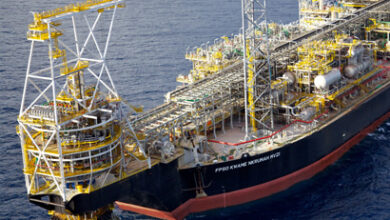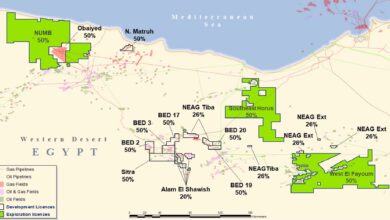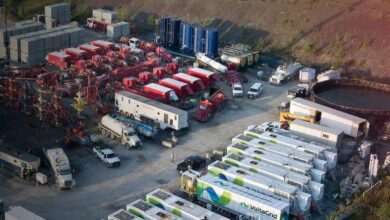Panel: Proactive engagement with public would cultivate trust
By Joanne Liou, editorial coordinator
Since the primitive scenes of oilfield gushers, like Spindletop in 1901, to today’s mainstream media coverage of the industry, the public’s perception of the drilling business is skewed by a lack of understanding and transparency. The industry’s efforts in safety and its awareness of the environment often go unnoticed outside the realm of industry employees. “We have to earn our social license to operate. We’ve got to be able to demonstrate we can safely and responsibly produce the energy we know this country is going to need,” Martin Durbin, executive VP, government affairs at American Petroleum Institute (API), said. “And we’ve got to be careful we don’t believe our own bad press; we have a great story to tell.”

Outreach to the public through multiple channels will help dispel suspicions and mistrust that have been fueled for decades by a lack of knowledge, panelists said at the 8 March plenary session of the 2012 IADC/SPE Drilling Conference in San Diego, Calif. Each panelist – Dr Quentin Dokken, president and CEO of the Gulf of Mexico Foundation; Thomas Williams, senior adviser of the Environmentally Friendly Drilling Program (EFD); and Mr Durbin – shared their insights and strategies on how the industry can earn the public’s trust and support. The session was moderated by George Foster, CEO of Foster Marketing.
Earning the public’s trust is not an easy, one-time task. The effort to educate and form positive relations with communities should be an ongoing effort and not a result of a tragic event, Mr Durbin said. Beyond analyzing figures and polling results of the public’s concerns, he discussed API’s listening sessions. “We’re in 11 different states right now running coordinating campaigns,” he explained. “This is about pulling together different oil and gas organizations, manufacturing organizations, grass-roots groups – we’re going county by county, town by town and starting listening sessions.” From those sessions, the public has been able to state their concerns, such as traffic and noise, and get them addressed.

API sees the importance of reaching out to communities, but efforts need to be made by individual companies as well. “It’s very important that we’re out there talking to them; it’s even more important that the individual companies are in there before you start operating,” Mr Durbin said.
The more the public knows, the more comfortable they will be with what the industry does. Knowing the efforts and the strides that have been made in safety and environmental performance, in addition to the contributions the industry makes to the economy, are key to building trust. “We’re not helpless. There’s a lot we can be doing,” Mr Durbin stated. “We do have to live up to very high standards; we ought to be pushing that standard as an industry, but beyond that we need to stand up, be heard and engage.”

Mainstream media plays a major role in painting the public’s view of the industry. If the industry does more to educate and cooperate with the public’s main source for news about this industry, it can help create a more honest and transparent perspective that is not clouded by negative notions. “You need to educate the media, and the time to do that is not 24 hours after something has happened. You have to get ahead of that curve,” Mr Dokken said.
The industry has the resources and the intellect to not only meet government standards but to exceed its own expectations of what needs to be done. “It’s incumbent upon you to step up out there and not wait,” Mr Dokken stated. There is an inexplicable gap between the public’s understanding and awareness of the industry’s improvement and how much of the industry’s product is embedded in everyday life. “The public does not understand the impact you have on their lives,” he added.

One way to support public outreach is through other channels, such as academia, environmental organizations and the government. EFD’s collaborative efforts have built programs with 21 universities to help enhance the industry’s credibility, Mr Williams explained.
Another way to support public outreach is by measurement. The industry’s culture around safety and efforts put into that also can be applied to protecting the environment. “We measure safety, and we improve upon it to make sure people who work in our industry come home every day,” Mr Williams said. “There’s no reason we can’t have that same culture in the environment, and there’s no reason we can’t measure those same types of things and continue to improve it. If you don’t measure what you do, you will never accomplish what you set out to do.”




